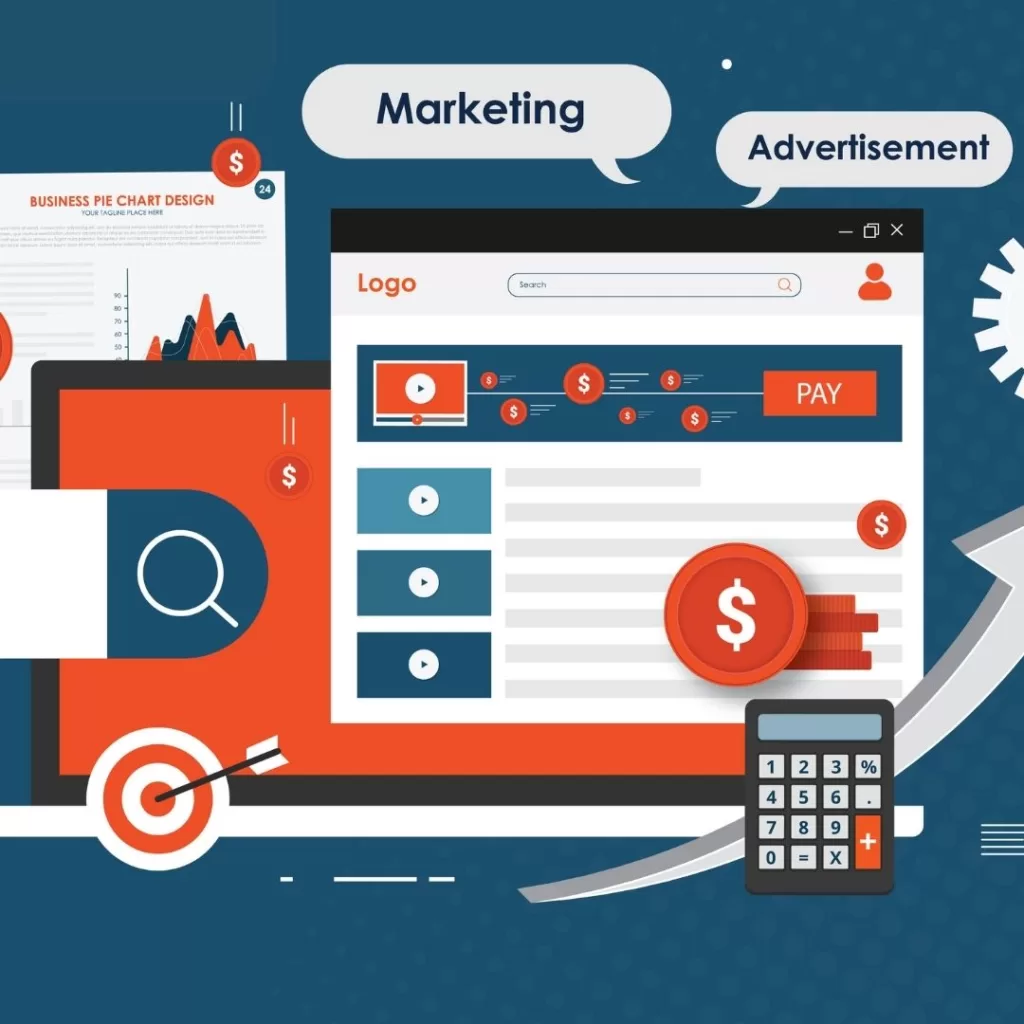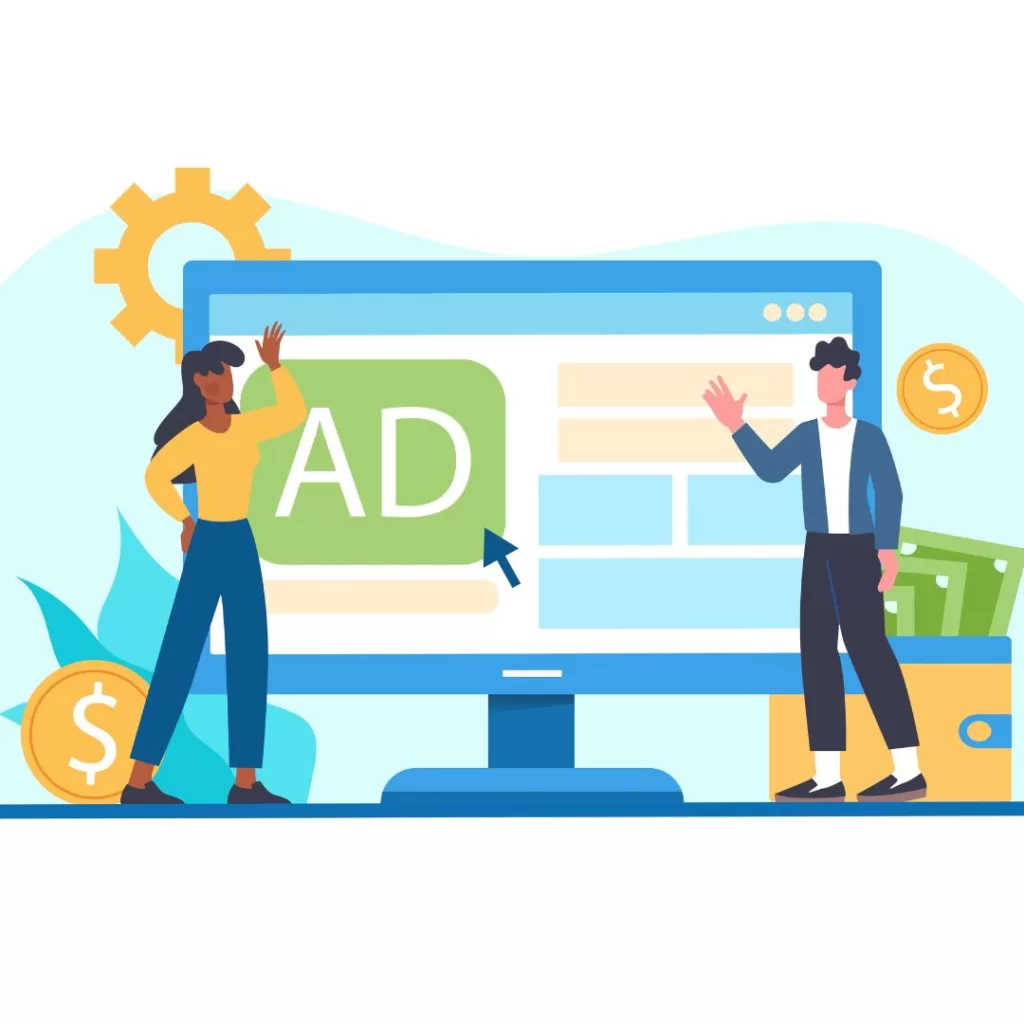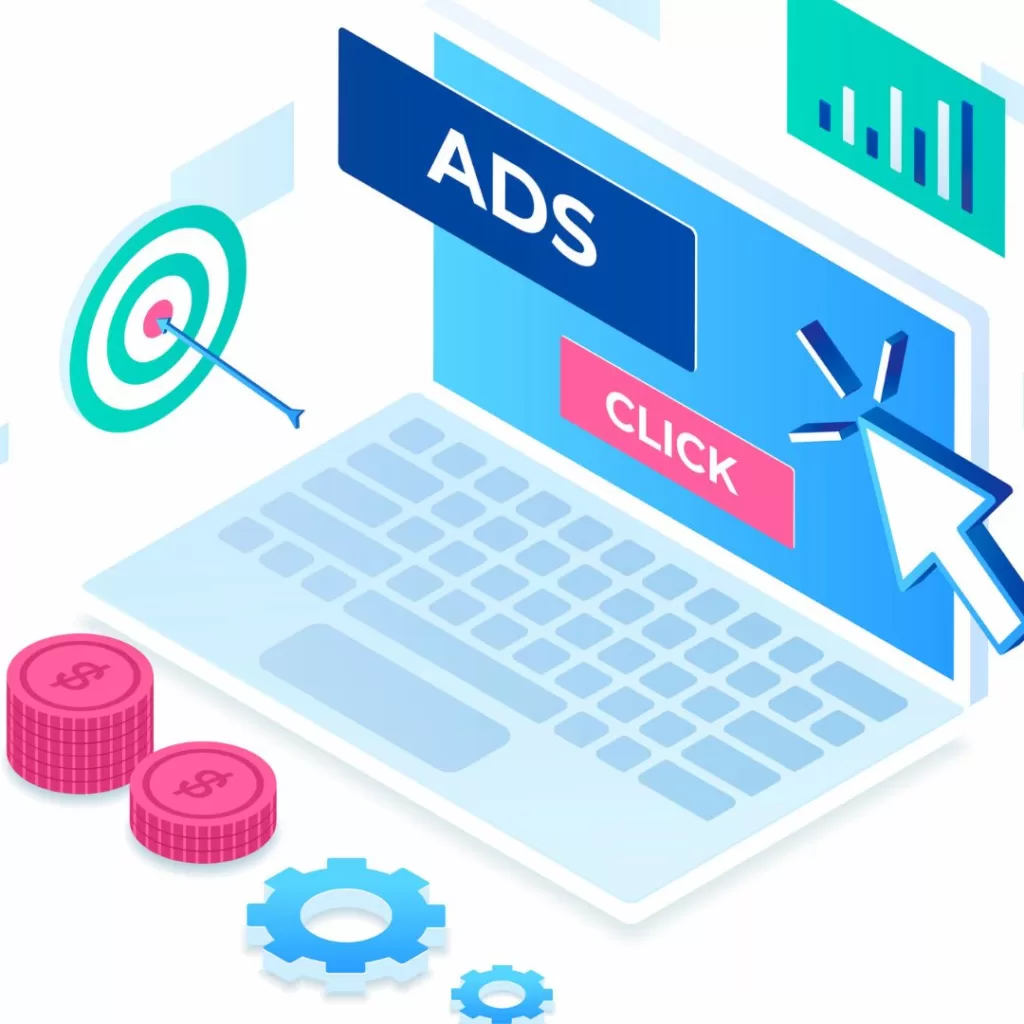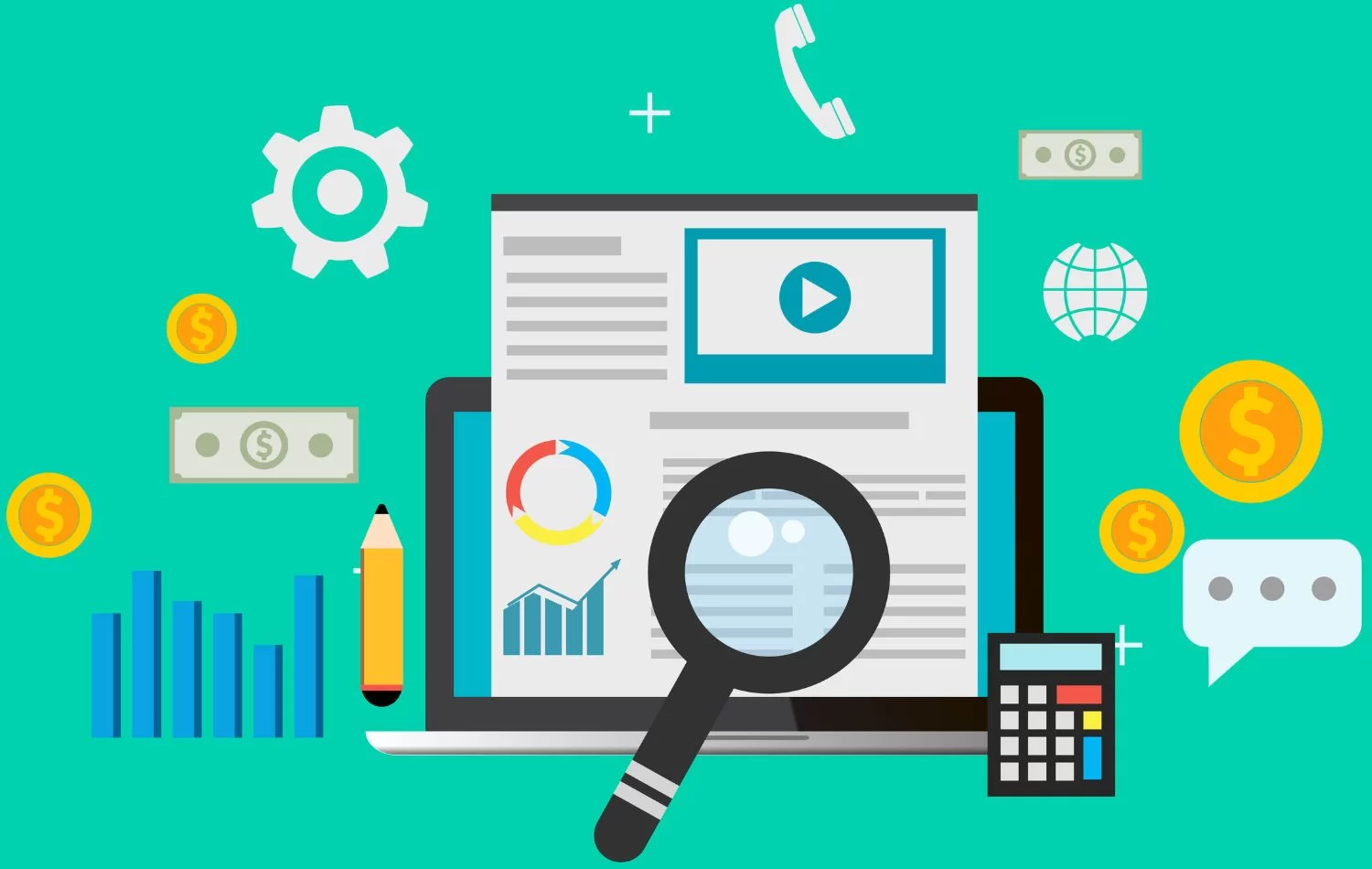Defining These Two Different Ad Campaign Types

Let’s define the difference between both types of advertising campaigns:
Pay-Per-Click (widely known as PPC) is a form of digital advertising in Search Engine Marketing. (SEM) where the advertiser pays a fee (how much they pay is based on the types and amounts of keywords are selected) each time their ad is clicked by a user. Paying for each visit to either a landing page or APP on a website allows for a faster, more efficient result than only utilizing organic search engine optimization (SEO) to gain foot traffic.
Some examples of PPC you would see are:
Google Search Ads (formerly known as Google AdWords) – an advertising service by Google that allows businesses to display advertisements on Google search results and its advertising network.
Google Shopping Ads – a type of ad that features details about specific products that you sell.
Display Advertising – a type of online ad that combines text, images, and a URL that links to a website where a customer can learn more about or purchase a product.
Remarketing Ads – a tool that lets you customize display ad campaigns for customers who previously visited a website and tailors future ads to these visitors when they browse the web or APPs.
Paid Social Media (known as Paid Social) is another search engine marketing (SEM) tool that displays advertisements or sponsored marketing messages across popular social media platforms and targets a specific audience. Examples of Paid Social would include sponsored advertising on Facebook, LinkedIn, Instagram, YouTube, and more.
Why You Should Consider Using These Types of Advertisements

Think of it this way: billions of people use search engines and social media to browse, research, and purchase products and services. If you have a business and want to find a way to get your name out there, consider PPC and Paid Social. While both allow targeting specific audiences or consumer persona, PPC and Paid Social differ slightly. Social platforms allow you to target customers based on age, interests, and location, enabling you to customize your paid social ads and promote your brand effectively. By putting the right practices in place, you’ll drastically increase conversion rates for your product or service to generate awareness. The more awareness you promote, the higher the chance a customer will purchase what you’re selling.
When Is the Best Time to Integrate These Methods into Your Digital Marketing Strategy?

Although each PPC and Paid Social campaign will vary in terms of when it’s best to integrate, the most optimal time would be based on your team’s overall digital marketing objectives and goals.
Let’s dive deeper; for example, the best time to launch your first (or next) Pay-Per-Click campaign would be when you want to generate quick results. Don’t forget to incorporate Organic Search Engine Optimization (SEO) and Search Engine Marketing (SEM) campaigns, as they work beautifully in tandem with each other (see our latest blog here). It takes time for SEO to show results, while a PPC campaign generates results almost instantaneously.
**Please note any campaign, whether organic or paid, should be monitored and modified across 3 months, ideally.
Paid Social Media campaigns focus on generating awareness for a specific product or service through multiple social media channels. Since, as mentioned before, billions of users utilize social media daily, the potential to reach an enormous target market is much higher. So, take this as an opportunity to engage with the users you’re targeting over time to maximize content, boost brand awareness, gain mobile access, and gather detailed market insights for future campaigns.
Tips For Managing Your PPC or Paid Social Media Campaigns

How can you win with a Pay-Per-Click and Paid Social Media Campaign? Here are some go-to tips:
- First, determine your PPC’s campaign structure.
- Next, refine your landing pages.
- Establish a keyword strategy based on research.
- Launch ads based on insights from research.
- Share your campaign plan with teams and stakeholders.
Don’t make mistakes others have made. Keep an eye out for the following:
- Building out a single basic campaign without utilizing Google Ads’ Ad Group Tool.
- Only creating keywords based on “gut feeling” and not from research.
- Not adding “negative keywords” to avoid wasting the budget.
- Using landing pages that are not engaging and generate zero leads.
- Setting budget caps and going live without informing anyone.
Let Our Team of PPC & Paid Social Media Experts Start Your Campaign on the Right Foot

Your business will reap long-term rewards by aligning your search engine marketing (SEM) strategy. By analyzing and monitoring key performance indicators (KPIs), we partner with you to ensure proper setup, monitoring, analysis, evaluating, and targeting for your audience. Our team at Reach Marketing Pro are your experts in Digital Marketing and SEM. We are your go-to resource for all things: Google My Business Experts, Google Partners, Google Analytics Certified, SEMrush Experts, Schema/Structured Data Markup Experts, Accelerated Mobile Pages (AMP) Implementation qualified, and Google Tag Experts.
For every client, every month, we don’t leave your advertisements untouched. Reach out to us today to launch your next campaign!

